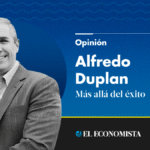Introduction
Dahlia de la Cerda’s insightful statement, “Feminism loses strength when it renounces complexity,” resonates not only in contemplating love but also in examining today’s political landscape. The absence of oversimplifications regarding feminism, politics, and power is evident in public discourse. This perspective brings us to Claudia Sheinbaum, Mexico’s first female president, who recently led her first Grito de Independencia.
Celebrating Claudia Sheinbaum
Social media buzzed with praise for Sheinbaum’s presidential performance: her stylish attire, the recognition of historically marginalized women (including indigenous and migrant women as well as Josefa Ortiz), and an all-female security detail. Personally, I celebrate the symbolic significance of having a woman in power for the first time. Dahlia de la Cerda’s idea of intersections, a concept describing how various forms of oppression intertwine and reinforce each other, applies here. Sheinbaum’s leadership challenges the temptation to oversimplify complex issues.
Leadership Qualities of Women in Power
Research supports the notion that women leaders often enhance productivity, strengthen collaboration, inspire greater organizational commitment, and promote equity. Empathy, a trait often attributed to women, plays a crucial role in these positive outcomes.
Sheinbaum’s Challenges
Despite her strengths, Sheinbaum faces daunting tasks. She governs a seemingly ungovernable nation, carries the legacy of her mentor, and navigates a testosterone-fueled, clumsy political party. Her position is not enviable, and like all figures of power, she embodies contradictions.
Balancing Act
Sheinbaum invokes women from history while adhering to her predecessor’s judicial reform stance. She displays signs of breaking from the past in security but only hints at change in strategic areas like energy. She promises economic growth while supporting constitutional changes that discourage private investment. She governs a country ravaged by organized crime yet dismisses the links between drug trafficking and politics as mere science fiction. She ignores the concerns of mothers seeking their children while distributing unconditional aid.
Gender and Policy
Sheinbaum’s policies transcend gender; they reflect personal conviction rather than enforced continuity. Her commitment to the “transformation” agenda drives her authoritarian approach. The upcoming T-MEC review with the United States will test her strategic acumen and intellect, potentially weighing more heavily than any symbolic gestures toward historical heroines.
Conclusion
Sheinbaum’s journey as Mexico’s first female president is marked by both celebration and challenges. Her leadership embodies the complexities of navigating political landscapes while striving for genuine transformation. The forthcoming T-MEC review will undoubtedly pose a significant test for Sheinbaum and her team.
Key Questions and Answers
- What is the significance of Dahlia de la Cerda’s statement? Her assertion that “feminism loses strength when it renounces complexity” highlights the importance of acknowledging and addressing intersecting forms of oppression in both personal relationships and political spheres.
- Who is Claudia Sheinbaum and why is she relevant? Claudia Sheinbaum is Mexico’s first female president, whose leadership embodies the complexities of navigating political landscapes while striving for genuine transformation. Her background in science and activism, as well as her commitment to social justice, make her a crucial figure in contemporary Mexican politics.
- What are some of the challenges Sheinbaum faces? Sheinbaum grapples with governing a seemingly ungovernable nation, carrying the legacy of her mentor, and navigating a political party dominated by testosterone-fueled clumsiness. Additionally, she must balance symbolic gestures toward historical heroines with the need for substantive policy changes.
- How does Sheinbaum’s leadership reflect on gender and politics? Sheinbaum’s policies transcend gender, driven by personal conviction rather than enforced continuity. Her commitment to the “transformation” agenda reflects an authoritarian approach, which will be tested by upcoming challenges like the T-MEC review with the United States.






